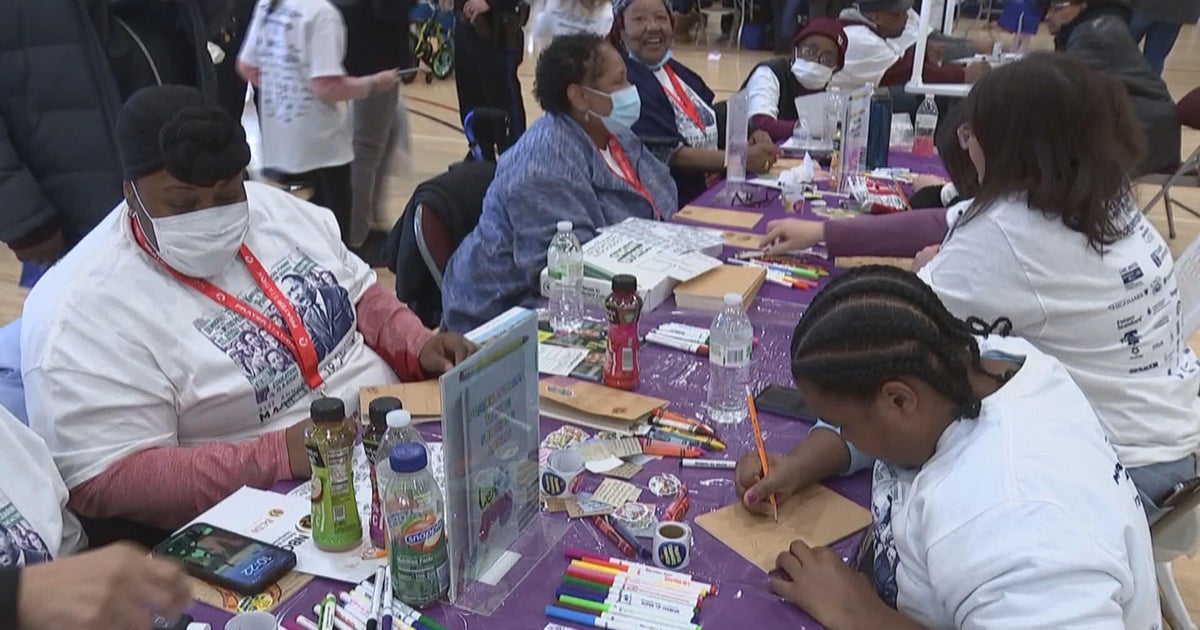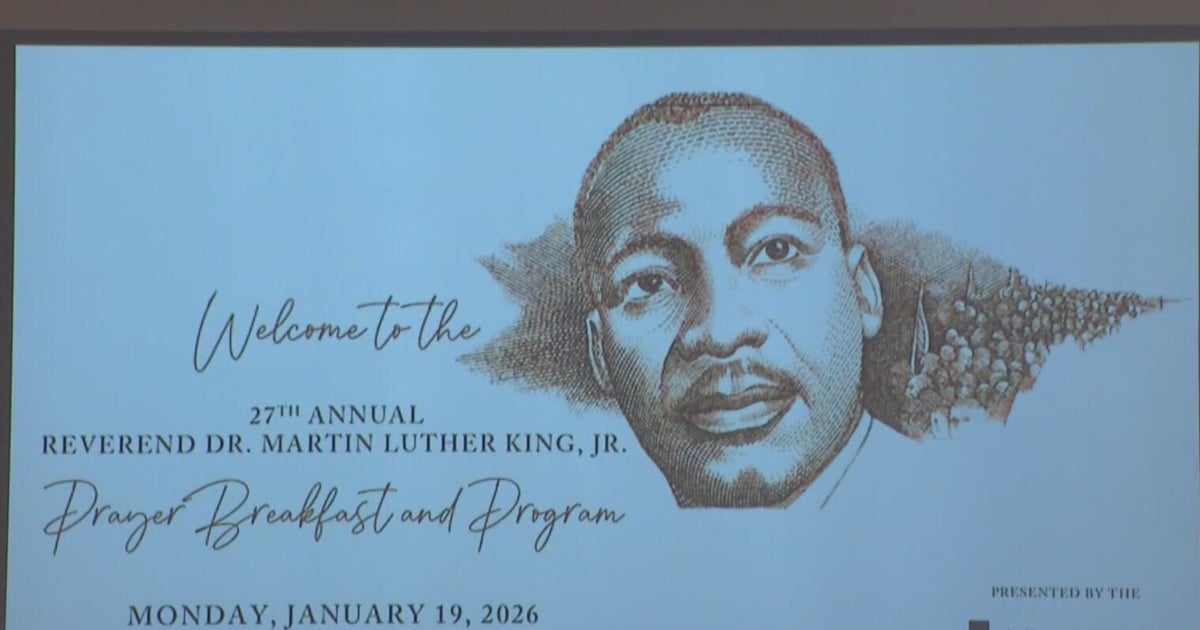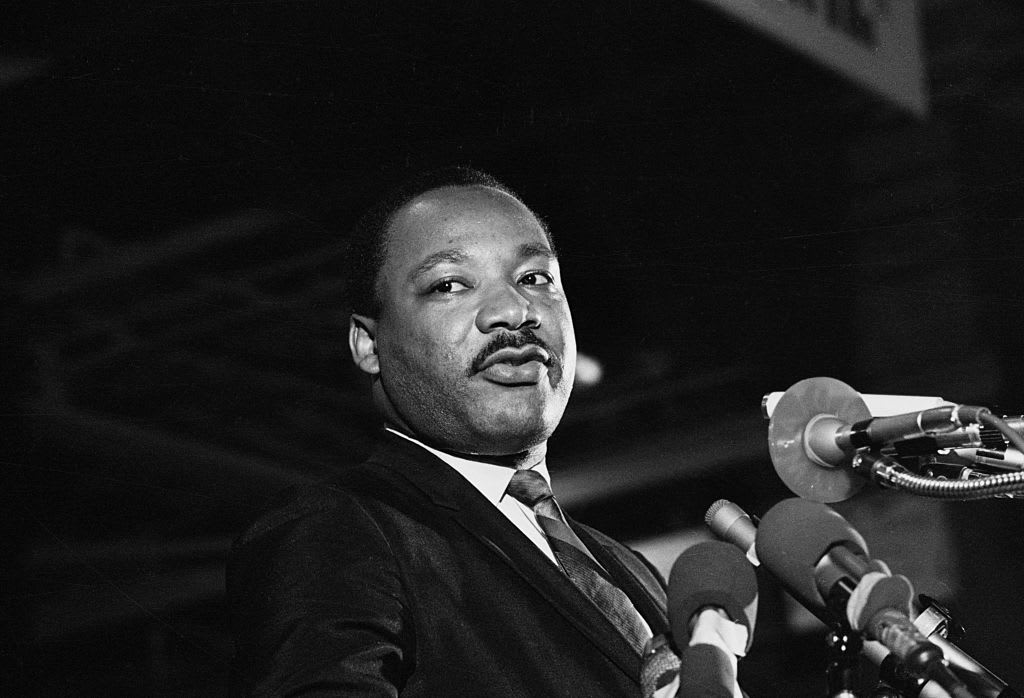For children of Martin Luther King Jr., trauma of his assassination is still fresh
This week marks the 50th anniversary of the assassination of Dr. Martin Luther King Jr. A new CBS News poll shows 53 percent of Americans believe only some of King's goals have been achieved. King was a pastor and a father of four young children while leading non-violent protests against racial inequality in the civil rights movement.
Only on CBS News, Michelle Miller spoke with his three living children for their first joint interview in 12 years. Martin the third, Dexter and Bernice King were just 10, seven and five when King died. But the trauma of April 4, 1968 is still fresh in their minds, reports CBS News correspondent Michelle Miller.
"Martin and I were watching television. And even to this day, when I see a breaking news flash, I have PTSD. You see your father being shot on television, that's very -- very traumatic," Dexter said, choking up with emotion.
Their father was shot and killed in Memphis, Tennessee.
"I remember us going back to mother and dad's room to get an explanation from her," Martin said. "I don't know that she said, 'Your daddy has been shot.' What I remember her saying was, 'Your dad has gone home to live with God.'"
"Have you grieved in the way that we all grieve the loss of a loved one?" Miller asked them.
"All of us to an extent have not fully had the chance to grieve," Dexter said. "I modeled my mom. Our mom was so stoic and she held everything together for all of us to be strong. But as a child, when you emulate that, in a real sense you're holding in your emotions."
Dexter said he's still working on letting go.
"It's almost a lifelong process. My first real moment was on a retreat with our youth," Bernice said. She was 16 years old. "I laid out over a bed for two hours. I kept saying why, why, like why did you leave me, why, why did you take him."
"Did you blame anyone?" Miller asked.
"I was angry. I was angry with God because I felt he could have stopped it. I was angry at my father, you know for leaving me. I was angry at white people because I felt like they were responsible at the time. And I didn't know it at the time, whether I was angry at my mother and me," Bernice said. "Eventually I realized I had anger at everybody."
"You were very close?" Miller asked.
"Yeah, as kids we were. Yeah," Bernice said.
"Are you in a good place, now? ... Was there a rift?" Miller asked.
"I don't think that I can recall that there was a time that we got to the place where we never spoke to each other," Bernice said.
"I think publicly, you have to be allowed to work through, navigate through your challenges," Martin said.
- Martin Luther King Jr.'s children in legal squabble over Nobel Prize
- MLK Jr.'s children in dispute over estate
"Did you have to lose your father for the nation and the world to appreciate him the way they do today?" Miller asked.
"If I had to do it all over again, would I want my dad here? I would say no," Bernice said. "Our world is in a better place because our father gave his life. So, yes, I walked through, yeah, Dad here, Dad there, having him you know to ask the tough questions when I'm going out on a date or something. But you know, where would our world be?"
King's children said they believe their father's legacy has been dumbed down over the years, telling me their father was far more radical in his quest to end racial and economic inequality. We know it was his support for striking black workers that took him to Memphis in April 1968.
Watch the video above to also see a "60 Minutes" interview with the Kings on the Christmas after the assassination of their father.






